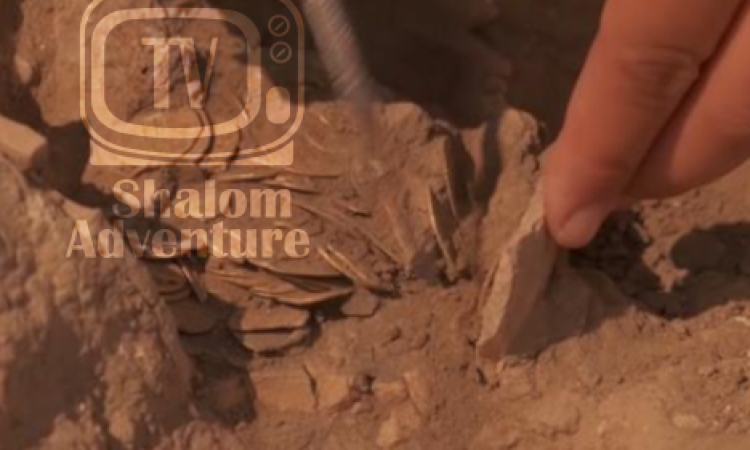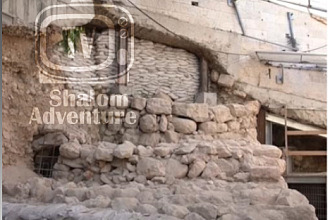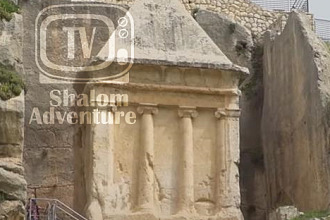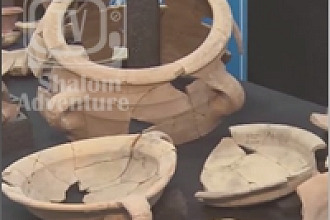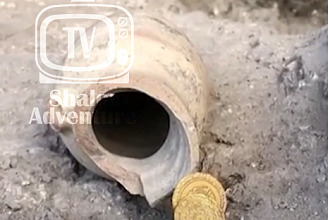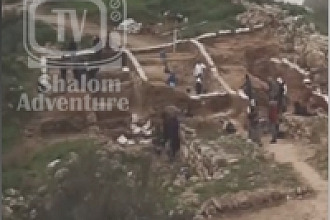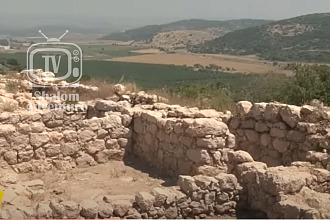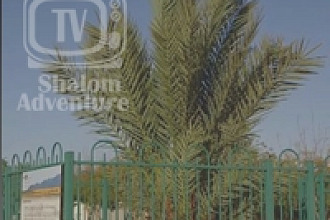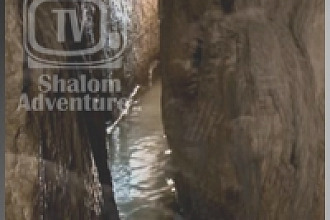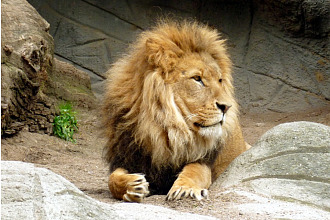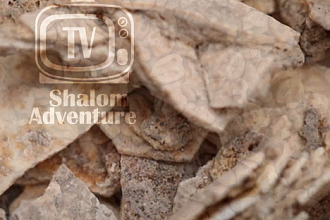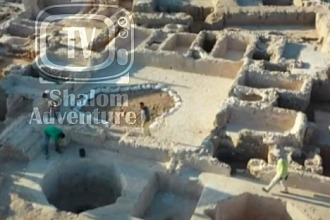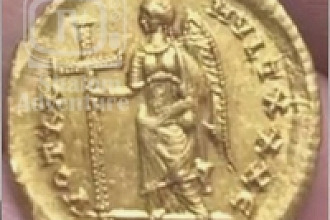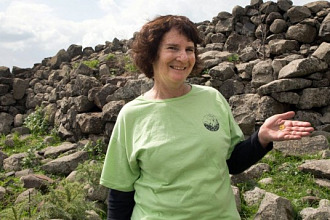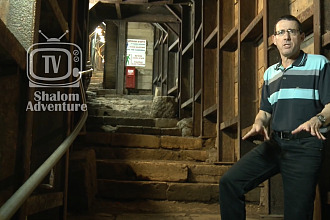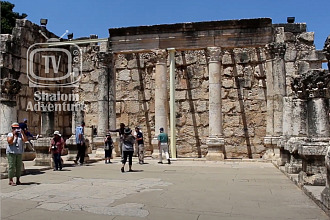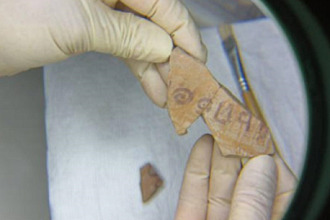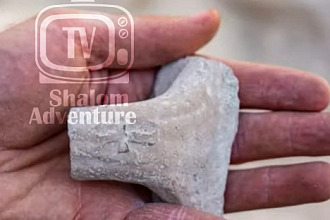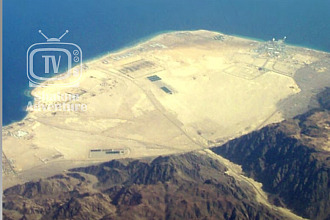An impressive and rare coin hoard from the Abbasid period, dating around 1,100 years ago, was uncovered by youth volunteering before their army service, in an archeological excavation carried out by the Israel Antiquities Authority, during the construction of a neighborhood in the center of the country.
Pre-army service "Shnat Sherut" youth participate regularly during the summer holidays in excavations as part of the Israel's Antiquities Authority's policy to bringing them closer to their past. Last Tuesday, two of these youth, of the "Cultural Movement" in Holon, suddenly noted something shimmering in the ground while working at the excavation.
According to Oz Cohen, one of the youth, "It was amazing. I dug in the ground and when I excavated the soil, saw what looked like very thin leaves. When I looked again I saw these were gold coins. It was really exciting to find such a special and ancient treasure."
According to the directors of the excavation, Liat Nadav-Ziv and Dr. Elie Haddad of the Israel Antiquities Authority, "The hoard, deliberately buried in the ground in a clay jar, contained 425 gold coins, most of which date to the Abbasid period. The person who buried this treasure 1,100 years ago must have expected to retrieve it, and even secured the vessel with a nail so that it would not move. We can only guess what prevented him from returning to collect this treasure. Finding gold coins, certainly in such a considerable quantity, is extremely rare. We almost never find them in archeological excavations, given that gold has always been extremely valuable, melted down and reused from generation to generation. The coins made of pure gold that does not oxidize in air, were found in excellent condition, as if buried the day before. Their finding may indicate that international trade took place between the area's residents and remote areas."

